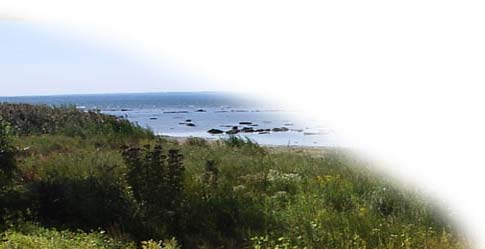Background
Considerations for Shorewalk
1. An 1876 official survey, by act of parliament, shows a shoreline
road from the mouth of the Niagara River to the westerly limit
of Fort Erie (then Bertie Township). By that date the land behind
the shoreline road was fully occupied. All farm lot lines that
approached Lake Erie ended at the shoreline road but did not cross
it.
2. As farmlands
were purchased for vacation homes during the late 1800’s
and on into the 1900’s many of the new vacation properties
were registered with lot lines to the water’s edge. We view
these extensions of the earlier surveyed farm lot lines as questionable
at best.
3. In 1893
the USA Supreme Court ruled that the navigable waters of the Great
Lakes were an extension of the oceans and thus the same rights
of passage along the shoreline pertained. Canadian courts have
been less supportive of the “extension of the oceans”
concept but it has never been clearly asserted and brought before
the courts as in issue of its own merits.
4. In 1911
the Beds of Navigable Waters Act was passed declaring the beds
of all navigable waters as public domain. This act was amended
in 1940so as to define “the bed” as extending to the
high water mark. The 1940 amendment seemed to re-affirm the long
held concept of maintaining navigable shorelines as public domain.
It furthermore confirmed our British-French heritage where, in
both nations, land to the high water mark is regarded as public
domain.
In 1951 an amendment to the Beds of Navigable Waters Act by H.R.
Scott, Minister of the Department of Lands and Forests moved their
jurisdiction from the high water mark to the low water mark. This
should be viewed as an expropriation of thousands of kilometers
of our public lakeshore.
5. Walker
vs the Attorney General (1971) This court case was brought by
the Ontario Attorney General to assert public rights to shoreline
up to the high water mark at lakefront property on Fort Erie’s
shoreline. Justice Stark ruled that the earliest known deed did
not specify a reservation of the crown along the shoreline and
that the wording of the deed was not specific enough to consider
the high water mark as the lakefront boundary. The courts ruled
in favour of Walker including the Supreme Court of Canada. Our
research indicated that over the past 35 years the courts have
become somewhat more predisposed to look favourably on the public’s
right to the shoreline.
6. In 2002
an amendment to the Beds of Navigable Waters Act reduced the right
of lakeshore property owners to own so called “water lots”
(ie The bed of the lake). In addition the Ministry of Natural
Resources states that their examination of the validity of water
lots shows many of them to be invalid. This situation is of particular
interest to boaters and needs further investigation.
7. In July
2005 the Michigan Supreme Court supported a claim to public walking
rights along all of that state’s Great Lakes shoreline.(3200
miles-5000km on four lakes) The judges background reasoning included
reference to English Common Law and to the concept that the Great
Lakes are viewed as an extension of the oceans.
The judgement
pointed out that a duality of rights existed such that the private
land owners retain full title to the land but the public has the
right to move over it. OUR GOAL -
to establish the same rights of passage on Ontario’s Great
Lakes coastline as now exist in Michigan.


About
the Ontario Shorewalk Association
We
are a group of concerned citizens based on Lake Erie's north shore
in the Fort Erie, Port Colborne, Wainfleet Ontario area. We have
members from many other parts of Ontario as well as support membership
from the UK and USA.
Objective:
To promote and enhance public access to Ontario's Great Lakes
shoreline.
Activities:
1. Build Membership, coalitions, and partnerships with like minded
citizens, and organizations.
2. Publicize
and monitor related public policy with our lakefront access objectives
in view.
3. Work towards
strengthening Ontario's waterfront legislative and judicial decisions
to reflect the public's right to walk all of our shorelines. (to
match American public Right of Passage (walking rights) in the
Great Lakes States)
4. Promote
and practice sound environmental policy within the above objectives
If
you agree with our agenda then
why not join Shorewalk?
Enrol online here – supporting (non-voting) membership is
FREE and active financial support lifetime membership is $10.00.



